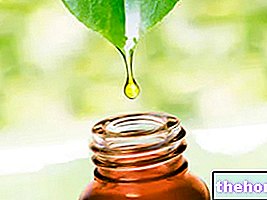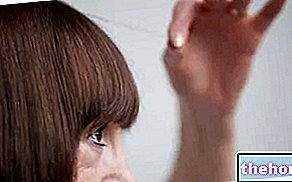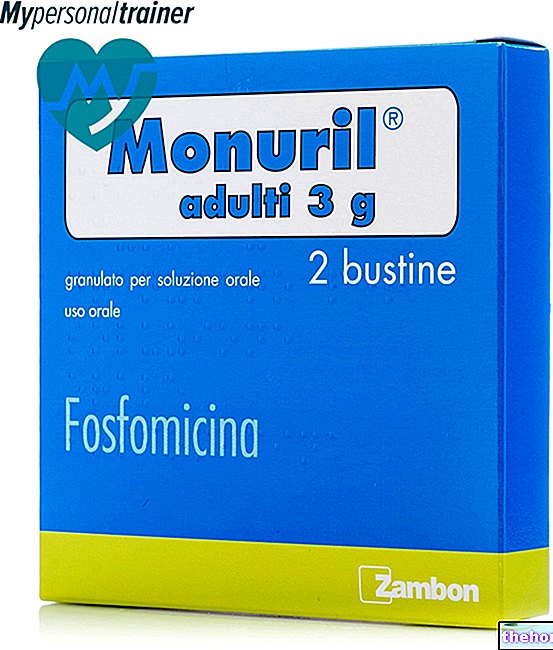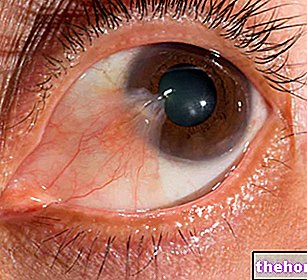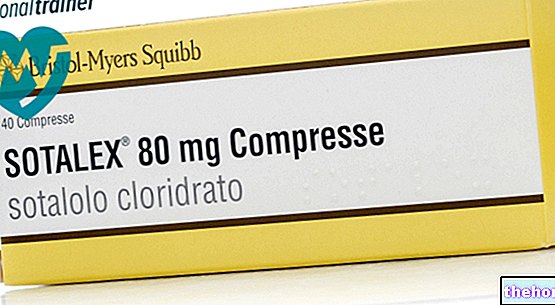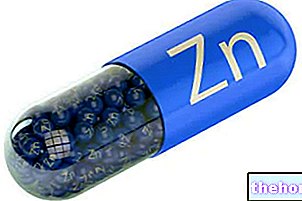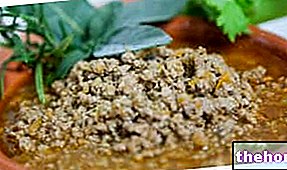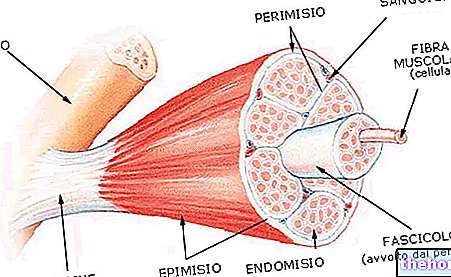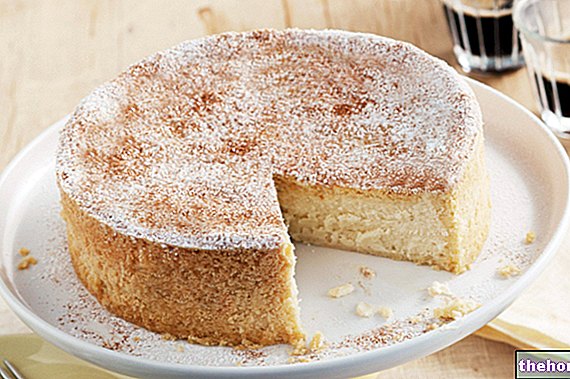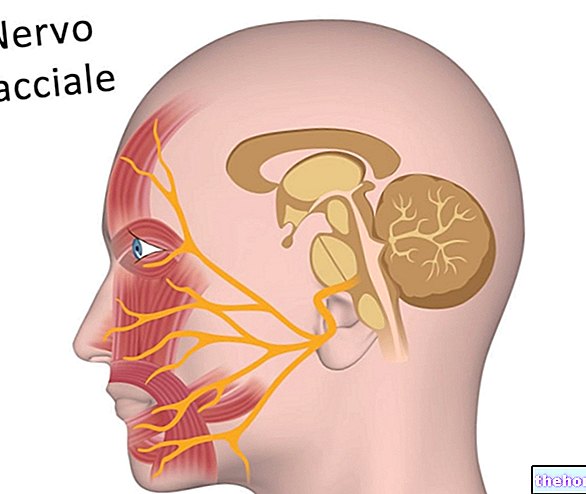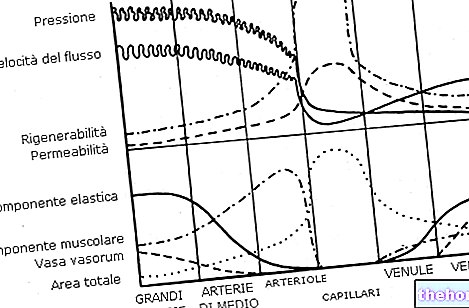Generality
Oily hair is a fairly common and in some ways embarrassing problem. The hateful feeling of sticky is not in fact a simple appearance, but the result of an excess of sebum that is deposited on the hair and scalp, favoring their adhesion.

Excess sebum is frequently associated with hair loss. In fact, both problems often have androgenic origins, although the two events are not always concomitant. For this reason the term seborrheic alopecia has now fallen into disuse.
Features
Oily hair has some peculiar characteristics, due precisely to the excessive production of sebum. Among these, we remember:
- Greasy and opaque appearance, darker than the original color;
- Easy and continuous soiling;
- Difficulty in maintaining the desired hairstyle;
- Sometimes presence of bad smell.
To describe the particular condition in which oily hair is found - characterized, in fact, by an excess of oily sebum - doctors use the term "oily seborrhea".
Under normal conditions the sebum lubricates the hair, constituting a natural protection against external aggressions. However, when its production becomes excessive, this substance runs down the hair and accumulates in the scalp, with all the negative consequences of the case. In addition to the aesthetic and hygienic problem, the alteration of the quantity and quality of the sebum tends to steal vitality from the hair.
We talked about the quality of the sebum because in some cases the problem of oily hair is linked, not so much to an excessive production of this oily substance, as to its excessive liquefaction. In fact, a more fluid sebum tends to spread faster along the hair shaft.
Causes
As mentioned, greasy hair is a consequence of an "excessive production of sebum and / or its excessive thinning.
Basically, this occurs for:
- Hormonal and genetic causes: the problem is largely linked to the hyperactivity of enzymes belonging to the 5-alpha reductase family, which convert testosterone into dihydrotestosterone. When the latter is present in high concentrations, it favors the appearance of acne and seborrhea, accelerates hair loss and sebum production. Furthermore, while in the hair it causes a "progressive atrophy of the hair bulb, it tends to reinforce the hair in the androgen dependent areas.
The degree of receptivity of the hair to the action of dihydrotestosterone is genetically determined. - Secondary causes, such as stress, air pollution, abuse of too aggressive shampoos or in any case of poor compositional quality. These factors can favor the appearance of oily hair, just as they can worsen the situation when these are caused by causes of genetic and hormonal origin.
Treatment
The simplest treatment to combat the problem of oily hair is based on frequent washing with little detergent shampoos.
The frequency of washing will depend on the severity of the problem which, when it is particularly acute, requires daily washing.
In any case, it is right to repeat it, it is necessary to use delicate shampoos to avoid removing too much sebum from the surface of the hair, depriving them of their natural protection.
It is also worth spending a few words to dispel the mistaken belief that frequent washing causes an increase in sebaceous production: in fact, the secretion of sebum is not affected by washing.
Instead, it is a good idea to dry your hair by keeping the hairdryer at a distance of at least thirty centimeters from the scalp, to prevent excessive temperatures from further fluidifying the sebum, accentuating the problem.
In the past, to combat the most stubborn cases of seborrhea, applications on the scalp of hydroalcoholic solutions based on progesterone were used, in order to keep the local hormonal activity under control. Today, to counteract the unfavorable action of dihydrotestosterone on alopecia and oily hair, more effective drugs have been developed, first of all finasteride (for men), and androgen receptor inhibitors such as cyproterone acetate, flutamide and spironolactone (for women).
Useful tips
To learn more, read: Oily Hair Remedies »
To limit the discomfort caused by oily hair as much as possible, it may be useful to follow a few simple tips and take some small precautions.
First of all, as previously mentioned, oily hair should be washed often, even daily, with delicate shampoos for frequent use, possibly alternating with specific products prescribed by the trichologist.
The number of washes will be greater the more the problem of oily hair is accentuated and the more the hair is exposed to pollutants and smoke. The hair of a sportsman, for example, requires a higher number of washes.
Even the use of astringent and purifying hair masks could be useful to relieve the discomfort caused by oily hair.
For further information: Homemade Mask for Oily Hair »
Furthermore, it is essential to remember that hair health also depends on regular nutrition. The recommendations are the same as those that ensure well-being and vitality to the rest of the body. Fresh foods rich in vitamins therefore, but also animal products to ensure the right amount of sulfur proteins (eggs, meat and fish) and mineral salts such as calcium, copper and zinc.
However, if signs such as greasy skin, hirsutism, widespread boils and acne appear in addition to greasy hair, it is a good rule to consult a dermatologist to make sure that there are no significant hormonal alterations at the root of the problem.
What NOT to do
There are many myths about treating and caring for oily hair. Often and willingly, these clichés also lead to wrong behaviors that - instead of solving the problem - make it worse and turn out to be completely useless, if not harmful.
In this regard, in case of oily hair it is necessary:
- Avoid drying your hair at excessive temperatures and putting the hair dryer too close to your head.
- Avoid using harsh shampoos, as they will only accentuate the problem of excessive sebum production.
- Avoid too vigorous massages during the hair washing phase.
- Avoid the use of oils, conditioners and gels on the scalp, as they could accentuate the shiny and greasy appearance typical of oily hair.
- Avoid running your hands through your hair frequently or brushing it excessively; these are common behaviors in those suffering from oily hair but which, unfortunately, do nothing but increase the diffusion of sebum along the hair and accentuate the problem.




